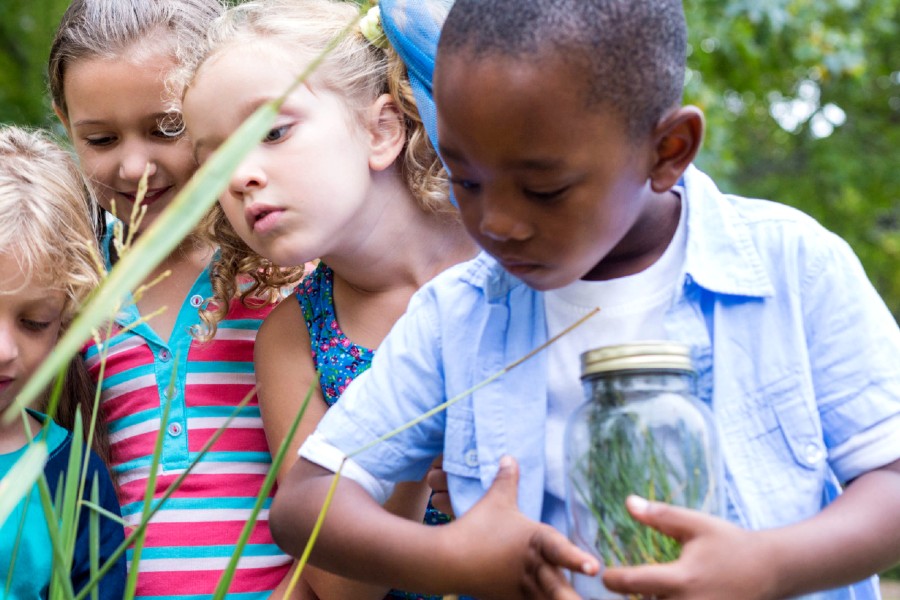 Almost everyone is familiar with the COVID-19 pandemic by now. Not only did it disrupt the lives of hundreds and thousands of adults, but it continued to have a lasting effect on children’s mental health as well. Similarly, there has been an aura of uncertainty. People failed to determine what could or might go wrong in the future.
Almost everyone is familiar with the COVID-19 pandemic by now. Not only did it disrupt the lives of hundreds and thousands of adults, but it continued to have a lasting effect on children’s mental health as well. Similarly, there has been an aura of uncertainty. People failed to determine what could or might go wrong in the future.
Keeping this in mind, the majority of the people failed to cope with this pandemic. Their stress levels increased, and their mental health suffered. If this were the case for adults, one could easily imagine what the children must have been through. Indeed, this recent pandemic caused a tremendous change in the mental well-being of children who are too young to understand anything.
The main question arises as to why COVID-19 is causing more anxiety and depressed behavior in kids than adults. Here are several reasons to understand why it frequently happens in kids.
1- Adaptability to Change
The first reason behind increased mental health problems in kids is their inability to adapt to change. As their daily lifestyles turned upside down, kids could not apprehend why all of this happened in the first place. Even their parents had to switch their daily routines – working from home, online grocery shopping, and whatnot. Such a new norm troubled the young mindsets who had no other option but to accept the given circumstances.
Just like adapting to change is challenging for adults, it is ten times more difficult for kids as their brain functions differently. For them, wearing masks out of nowhere and not stepping outside their homes was an entirely strange notion. However, counseling students through COVID centers and teaching them different coping methods can be extremely helpful. Most of their underlying concerns can be revealed by talking about their mental health problems and changes in mood and behavior.
2- Isolation
Children who are socially isolated are at a higher risk of facing mental health issues when they grow older. A lack of healthy social relationships in life harms the brain’s development. Every child yearns for love and affection, but they received the bare minimum of it during COVID-19. For them, attending school, playing with other kids, and socializing meant everything. Right after the strict lockdown was implemented, children saw a drastic turn of events where they had to isolate themselves. In other words, children who went through several weeks of isolation struggled to communicate with others normally. Their cognitive functioning and social interaction capability worsened with time. Later, children started suffering from anxiety, and depressive episodes became more apparent than ever.
3- Distance Learning
Children were born into a traditional schooling system, which got disrupted due to the recent pandemic. The physical form of teaching felt like home to many kids. They spent a significant amount of time with classmates and teachers but couldn’t continue doing it due to distance learning. When distance learning was introduced, many children struggled with it. Most of the children were trapped inside their homes with numerous problems. For instance, COVID-19 negatively affected the livelihood of thousands of people. Many lost their lives due to the illness, and chronic stress levels increased massively. Similarly, losing out on social relations and a sense of normalcy was puzzling for kids and adults alike under quarantine.
Distance learning for kids meant figuring out how to study in front of a computer screen without losing interest. They could not understand the requirements of remote learning and how to engage with their teachers properly. Right from signing into their online classroom to giving replies to their teachers, children felt anxious at every step of the way. They feared making mistakes online, and the learning gap was an additional stressor. In addition, children who failed online subsequently suffered from various mental and physical health issues.
4- Abusive Households
Not every other house is a haven for younger kids. Some children are subjected to various forms of abuse by their parents, including mental and physical abuse. Developmental trauma can lead to cognitive and behavioral issues later in life. Attending school and playing with friends outside was a much-needed break for them. However, COVID-19 limited their chances of joy. They suffered from traumatic events like parental neglect, domestic violence, sexual abuse, and much more. Even the loss of close family members had a devastating effect on kids’ mental and physical health. Later, their only coping mechanism was to suppress their feelings and stay quiet at all times.
The Bottom Line:
These reasons are enablers of increased anxiety and depression levels in kids. Their perception of living a good life came down to the bare minimum facilities to stay alive. How today’s kids define the meaning of life will be way too different from the actual definition. It is mainly because of the disruptions caused by the COVID-19 and the diminishing quality of life. Now, many kids are going through post-traumatic stress to deal with the deep-seated effects of the pandemic.
Become a Harlem Insider!
By submitting this form, you are consenting to receive marketing emails from: Harlem World Magazine, 2521 1/2 west 42nd street, Los Angeles, CA, 90008, https://www.harlemworldmagazine.com. You can revoke your consent to receive emails at any time by using the SafeUnsubscribe® link, found at the bottom of every email. Emails are serviced by Constant Contact








